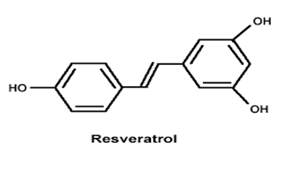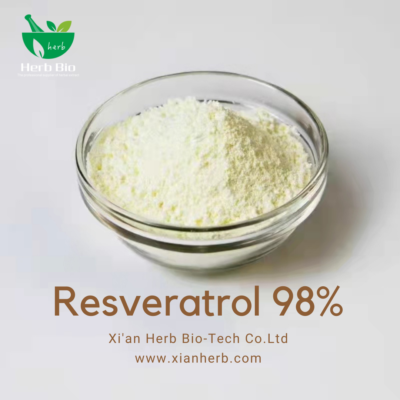Seven friendly effects of resveratrol on people.
Regulate blood sugar, beneficial to diabetics
Diabetes is the most common chronic disease, but it is also the easiest to prevent. But because of this, people often take it lightly. The problem with diabetes is arteriosclerosis. In addition to greatly increasing the chances of myocardial infarction and stroke, if it affects the kidneys Microvessels can further cause kidney failure, so how to control blood sugar is vital to life (in the United States alone, 70,000 people die from diabetes complications every year).
The study found that for overweight people, taking resveratrol (150 mg daily for 30 days, which is the DSM patented ingredient resVida) can improve their blood sugar levels (decrease by 4.2%) and insulin concentration (decrease by 13.7%).
Resveratrol and weight loss
A systematic literature analysis (Systematic Review, including 7 studies with a total of 208 participants) pointed out that for overweight subjects, oral resveratrol has no significant effect on weight management, reducing adipose tissue, and abdominal obesity ( However, the only positive result was that resveratrol reduced inflammatory markers).
However, considering limitations such as the small number of samples, heterogeneity, and the short experimental period (mostly less than 90 days), further confirmation remains to be made in the future.
Reduce cardiovascular disease risk
In a 6-month study of 34 patients with metabolic syndrome, it was found that taking resveratrol (100 mg daily) improved markers of vascular health: endothelial cells compared with the placebo group. Diastolic function, but other blood values were unchanged.
In addition, it was found in a double-blind controlled study (sample number: 75 people, experimental period of one year) that taking resveratrol can not only significantly improve a variety of inflammatory factors, but also reduce factors that cause thrombosis, which may be used as a preventive The golden ingredient for cardiovascular disease.
Improve cognitive function (may help with dementia)
In a small study (of overweight adults aged 50 to 75), it was found that taking resveratrol (200 mg daily for 26 weeks) not only improved blood sugar metabolism and body fat, but also improved blood sugar metabolism and body fat. Helps improve memory performance (can recall more words heard 30 minutes ago) and hippocampal connection function/an important area in the formation of long-term memory.
Beneficial in age-related macular degeneration
A preliminary study found that resveratrol can inhibit the vascular endothelial growth factor VEGF, slowing down choroidal neovascularization, and may improve the disease process of macular degeneration.
Extend animal life
Therefore, in a controlled animal study, it was found that (both groups were fed high-calorie food), experimental mice that ingested resveratrol could significantly increase their survival rate and reduce mortality by 31% (in addition to increasing insulin sensitivity and lowering blood sugar). , increase mitochondrial production capacity, improve mobility, etc.) However, the life-extending effect of resveratrol on humans has not yet been determined, so it still needs to be confirmed by more large-scale and accurately designed studies in the future.
ulcerative colitis
Ulcerative colitis is a type of inflammatory bowel disease. The main clinical symptoms include bloody diarrhea, abdominal cramps and other symptoms. It is a chronic inflammation caused by immune dysfunction (the intestinal mucosa is the main affected part), and Patients also have a higher incidence of bowel cancer. It is currently believed that oxidative stress and free radicals play an important role in the cause and exacerbation of diseases, and resveratrol has become the target of many studies due to its excellent reactive oxygen scavenging ability.
What are the side effects of resveratrol?
Resveratrol is still an emerging health care ingredient. So far, there are still few large-scale human trials, so the exact effective dose and safety concerns have not yet been established.
In a human study (29 days), it was found that taking large doses of resveratrol between 2.5 g and 5.0 g daily may produce symptoms of mild gastrointestinal discomfort (including nausea, flatulence, abdominal discomfort, and diarrhea). ) (Symptoms appear 2 to 4 days after starting to take it and develop half an hour to 1 hour after ingestion).
Precautions
Pregnant women, nursing mothers, children, and people with liver and kidney dysfunction should not use this product (because the safety is unknown).
It may have an anticoagulant effect, so do not take it together with related anticoagulant drugs (such as warfarin, heparin), antiplatelet drugs (dipyridamole, clopidogrel), and nonsteroidal anti-inflammatory drugs (NSAIDs).
Resveratrol may interfere with enzymes in the liver related to metabolizing drugs (such as cytochrome P450, CYP1A2), thereby interfering with the effects of many common drugs, and may cause unknown risks to drug users. Therefore, it should be avoided to use it in combination with drugs or herbal medicines, or use Consult a qualified physician or physician before use.
It may have a slight estrogenic effect (found in animal studies, but not confirmed in human studies). For safety reasons, those with estrogen-sensitive diseases (such as breast cancer, ovarian cancer, and uterine cancer) should avoid taking it.
Xi’an Herb Bio welcomes you.
This ends today’s sharing. If you want to know more, welcome to Xi’an Herb Bio.
You will find the answers here too.






Leave A Comment